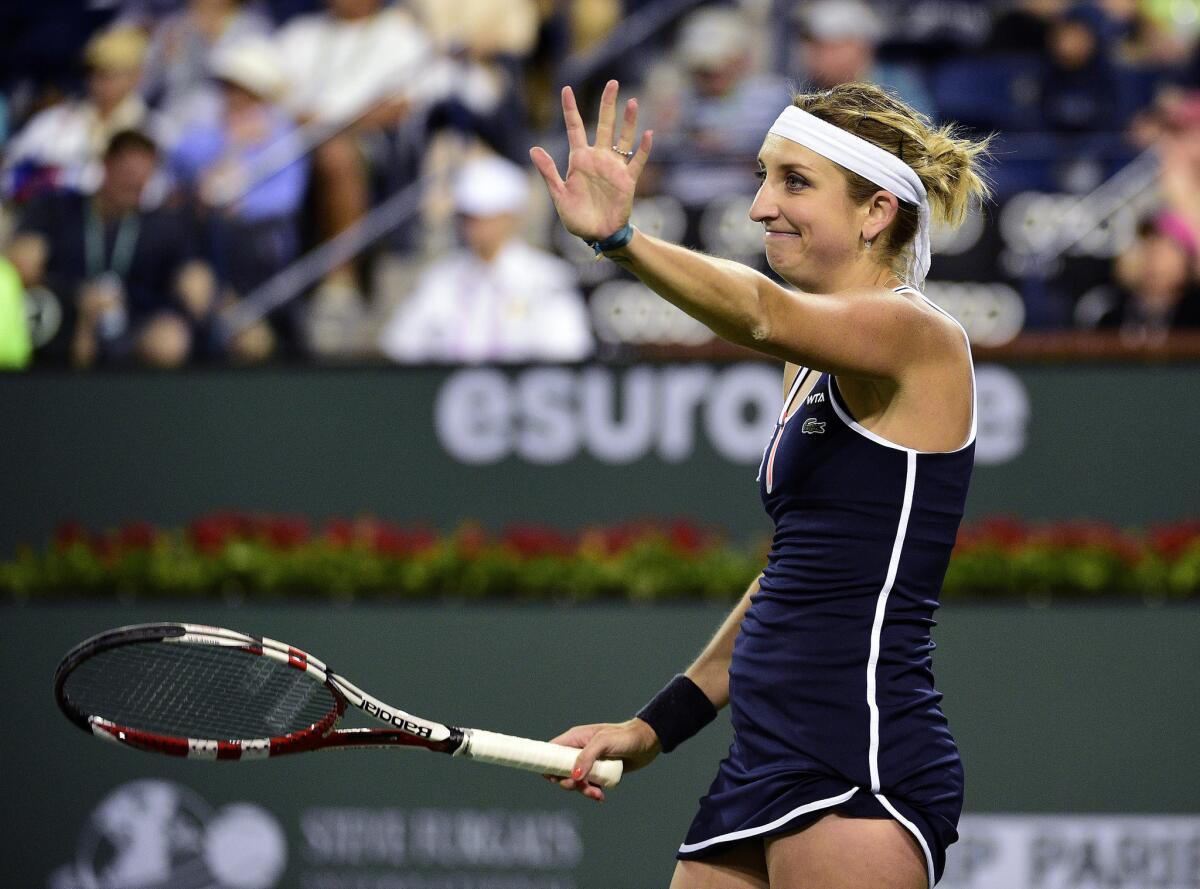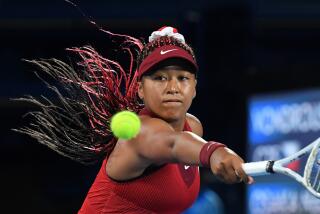Tennis’ little-known Timea Bacsinszky tells important personal tale

- Share via
Timea Bacsinszky is a tennis player who is virtually unknown outside of those women who go around the world with her on the WTA traveling road show.
When your name ends in five consonants and your best major tournament advances are seven years apart — third round of 2008 U.S. Open and 2015 Australian — you aren’t a household word, even in tennis households.
Which brings us to Wednesday night, at the Indian Wells Tennis Garden and a quarterfinal match of the BNP Paribas Open. It had taken Bacsinszky 15 straight victories to start getting noticed on a major level. Now, she had to beat Serena Williams to make that 16.
That, of course, was too tall an order. She lost, 7-5, 6-3, but acquitted herself well against the No. 1 player in the world.
It is tough getting noticed, and known, outside the top 20 in women’s tennis. Even after she had won her round-of-16 match Tuesday night, and with late night deadlines looming, she was third in line to meet the media, held until a defeated Maria Sharapova and an emotional Flavia Pennetta were ushered in.
But once she did get the microphone , the little-known story of Timea Bacsinszky became more compelling than any discussion of her upcoming match with Serena Williams. Or of any analysis afterward.
She is 25. She was born and raised in Switzerland by Hungarian parents, father Igor and mother Suzanne. Igor was a tennis coach, Suzanne a dentist.
The quick summary is that Igor was abusive, Timea eventually demanded that her mother divorce him or she would leave them both and do whatever it was she could to make it on her own.
Suzanne left, Timea stayed with her mother and no longer has a relationship with her father.
Her story is not well known because she isn’t. Tuesday night, she was only momentarily hesitant when nudged to tell it.
“I have been a kid of like a syndrome of pushy parents,” she said. “I think it happens worldwide. … As a woman, as a young girl, you can never go against the power of a dad. You have no money or nothing.
“Actually, you have no chance to get out of it. Or you tank your tennis career and you lose matches. ... .On the tennis court, I knew that no one had, how do you say, the power on me.”
Bacsinszky said tennis was her best opportunity for defiance and independence.
“When I was playing a match,” she said, “if my dad told me, play cross court, I would say, ‘Well, I’m going down the line.’ I had to win the match, otherwise it would not be OK.”
If this wasn’t enough, soon came the gut punch.
“At home, I was kind of in a prison,” she said.
She is 25, suffered a serious foot injury in 2011 and struggled for several years. She was No. 285 at the end of 2013 and is now No. 26.
Bacsinszky entered the match against Williams with the best record on the WTA Tour this year, 21-2, and she has winnings in 2015 of $305,126.
That figure will grow by $112,270, her quarterfinal winnings. Better yet, her deep advance here gave her a chance to tell her story to more people, a story that is a truly important and cautionary tennis tale.
Twitter: @DwyreLATimes
More to Read
Go beyond the scoreboard
Get the latest on L.A.'s teams in the daily Sports Report newsletter.
You may occasionally receive promotional content from the Los Angeles Times.











